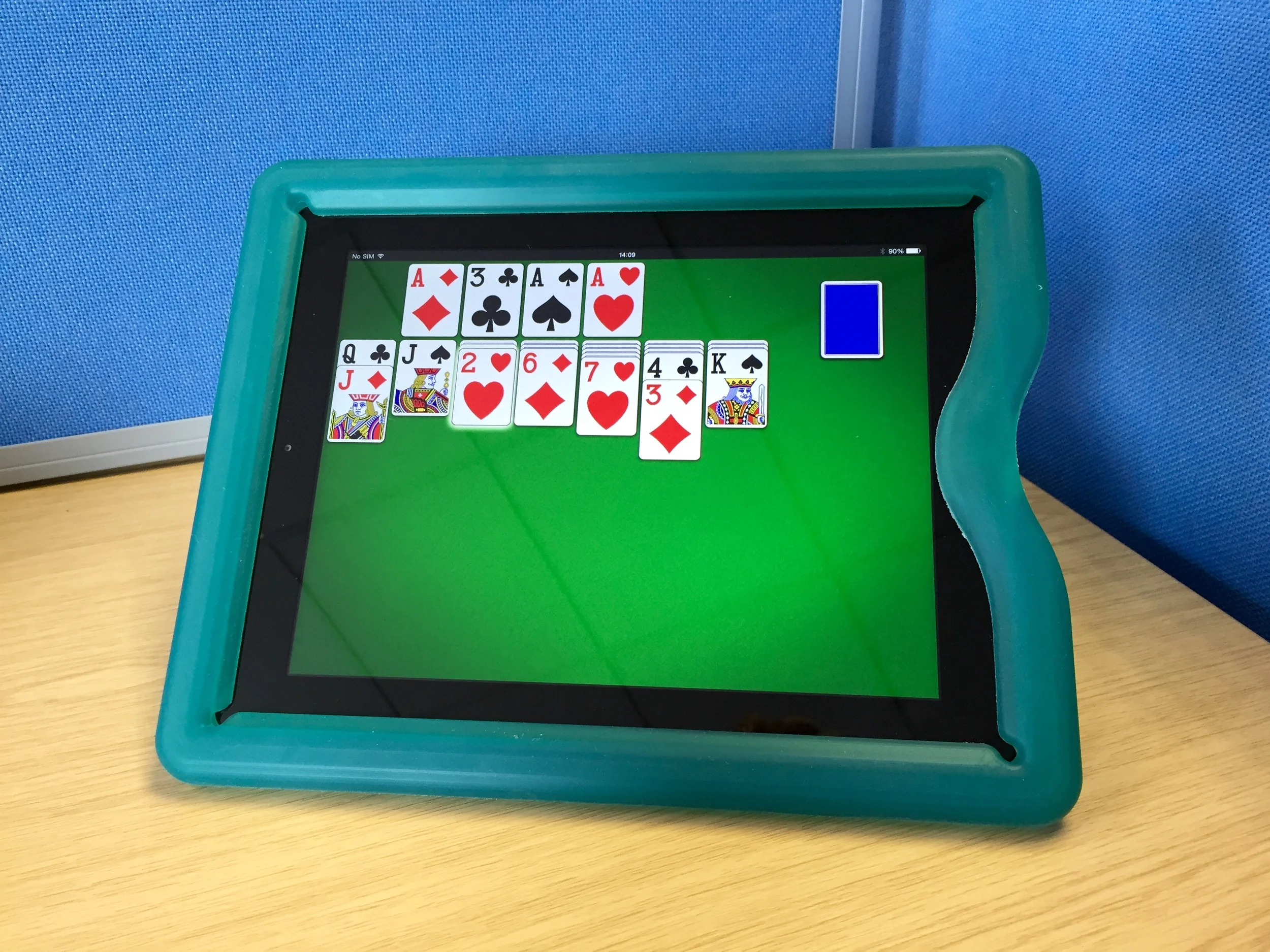InTouch
This international project funded by SIA RAAK commenced in the Netherlands in September 2011.
The project comprised three stages: the development of a new iPad case for people living with dementia; the development of original game prototypes for people living with dementia; and the evaluation of existing games on the Apple iPad.
'Proud To Play' iPad Case
The development of a specialist Apple iPad case for people living with dementia was conducted by an Industrial Design student of Rotterdam University of Applied Sciences in Spring 2011 for the InTouch project.
The original concept of the case was to provide a safe and convenient platform for people living with dementia to use the iPad. Since the conclusion of the InTouch project, the design has been brought to market as the Proud To Play iPad case, which is available to buy directly from the manufacturer's website. Follow the link below to visit their website.
Cordia, A. L. (2015). Design of an iPad cover for people with cognitive impairment. Gerontechnology, 13(4), 426–427. http://doi.org/10.4017/gt.2015.13.4.010.00
'Happy Games' app
A concept 'Happy Game' touchscreen app was designed for the Apple iPad to provide a meaningful individual activity for people living with dementia; facilitating enjoyment and to creating a sense of self-achievement.
A prototype of this game was played by nine people with dementia, seven of whom reported enjoying their experience. It was concluded that the employment of a collaborative design process facilitated an understanding of the requirements, preferences and abilities of people with dementia when creating this app.
Schikhof, Y., Groenewoud, J. H., Cordia, A. L., & Lange, J. De. (2014). Designing happy games (apps) for people with dementia. Gerontechnology, 13(2), 160–161. http://doi.org/10.4017/gt.2014.13.02.106.00
Apple iPad games
Phase One. An evaluation study of existing apps on the Apple iPad was conducted between September 2012 and February 2013 in Rotterdam to explore the reaction of people with dementia to the iPad. Ten iPad apps were selected by a steering group including traditional games as well as sensory experiences and activities.
Structured, direct, non-participatory observations were used to assess the wellbeing and behaviour of 30 service users living with dementia from three different older adult care services in Rotterdam. Each participant was invited to play one of the games at three different dates, resulting in a total of 90 observation sessions that were analysed gameplay behaviour and emotional reaction. The games were found to be engaging and some provided a positive level of challenge, but many were not suitable for the target population due to their difficulty and inappropriate design. It was concluded that further research should be conducted addressing the accessibility of touchscreen games so that they meet the needs of people living with dementia.
Groenewoud, H., Schikhof, Y., Astell, A. J., Goumans, M., & de Lange, J. (2014). iPad Happy Games for People With Dementia As Pleasant and Meaningful Activity. In Alzheimer’s & Dementia (Vol. 10, p. 181). Elsevier. http://doi.org/10.1016/j.jalz.2014.04.201
Phase Two. An evaluation of two touchscreen games on the Apple iPad was conducted, with a focus on the concept of familiarity when selecting touchscreen activities in dementia care. The results provided further evidence that people with dementia can play and enjoy touchscreen games independently, and it was concluded that familiarity should not solely be relied upon when selecting activities as there is great potential in novel games too.
To learn more about this phase of the research, download a copy of our article published in the International Journal of Medical Informatics below.
Astell, A. J., Joddrell, P., Groenewoud, H., de Lange, J., Goumans, M., Cordia, A., & Schikhof, Y. (2016). Does familiarity affect the enjoyment of touchscreen games for people with dementia? International Journal of Medical Informatics. http://doi.org/10.1016/j.ijmedinf.2016.02.001








